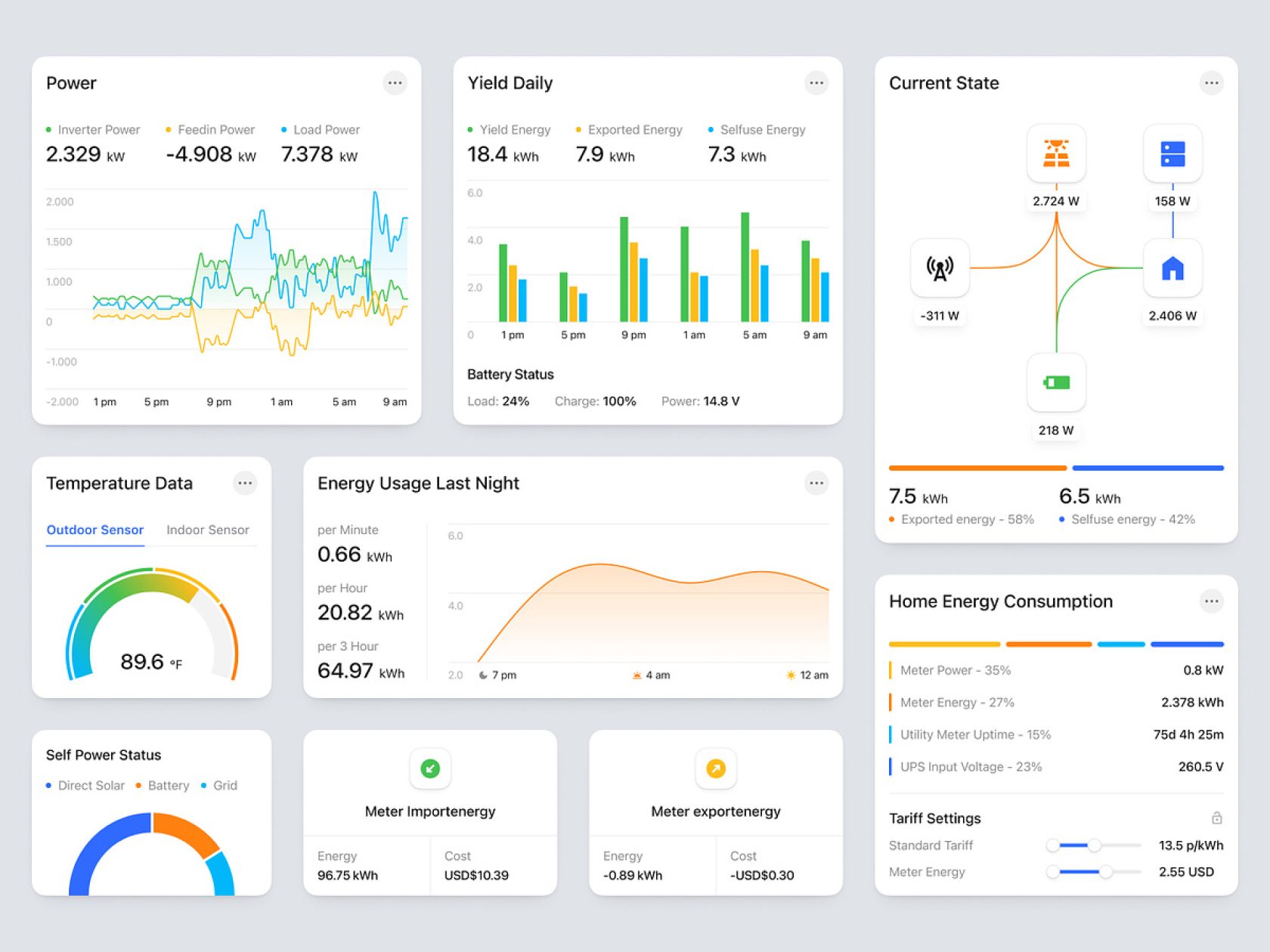For many business owners, blockchain is the road to transformation. Blockchain is already transforming industries and business processes, leading to completely new experiences and groundbreaking results, in terms of transparency, disruption, and innovation.
Once considered a specialized technology, the technology is now a game-changer for various industries. It brings benefits like digital automation, security, and significant cost savings. Shareholders are urging oil and gas businesses to reduce expenses and boost profits, creating pressure. Blockchain can support the oil and gas supply chain by automating tasks and offering greater transparency.
But what if blockchain technology can be used to transform the industry? What if we can witness a completely new reality of the uses of blockchain, as well as big data in the oil and gas sector, making it innovative and more transparent? Let’s have a look.
The Evolution of Blockchain in Oil and Gas
Blockchain technology, just like IoT in oil and gas, does already have a background. The role of this technology in the oil and gas industry has evolved through various stages, starting with early interest and proof-of-concept trials around 2016-2017.
The initial focus was on supply chain management and reducing paperwork. Subsequently, smart contracts were introduced to streamline transactions, and blockchain's cryptographic security features became crucial for data management and integrity.
Consortium and industry-wide initiatives were formed to standardize protocols and share best practices. Tokenization of physical assets also emerged as a potential use case. As the technology matures, its adoption is likely to continue growing, bringing enhanced transparency, efficiency, and security to operations.

The Impact of Blockchain on Physical Commodity Trading
Blockchain technology has significantly impacted physical commodity trading by introducing transparency through its decentralized and immutable ledger, allowing stakeholders to track the supply chain and verify the origin and quality of commodities, thereby reducing fraud and enhancing trust. It has streamlined trading processes with smart contracts, accelerating trade settlement and reducing administrative burdens.
The cryptographic security of blockchain ensures secure transactions, particularly beneficial for cross-border trades. Additionally, it enables the digitization of trade finance, facilitates swift cross-border payments, and introduces fractional ownership through asset tokenization, opening new investment opportunities.
Blockchain's transparent and auditable transaction history also aids regulatory compliance, making the technology a transformative force in the commodity trading landscape, with the potential for further growth and innovation.

Blockchain Technology For Improved Trust
Blockchain significantly boosts trust in the oil and gas industry. It ensures secure and transparent recording of data, like transactions and contracts, reducing fraud risk and improving efficiency. Companies can share information confidently, fostering collaboration with partners, regulators, and customers.
Smart contracts automate and enforce terms, streamlining processes and minimizing disputes. Blockchain's innovation promotes reliability and accountability, creating a more trustworthy and resilient oil and gas ecosystem.

Blockchain's Future in Oil and Gas: Transformative or Transient?
Blockchain technology has the potential to bring big changes to the oil and gas industry. It can make processes more efficient, secure data, and create trust among different parties. By using blockchain, companies can track materials and assets in real-time, save costs, and enhance collaboration. While there are challenges, its impact could be transformative, leading to better and more sustainable practices in the future.
Case Studies: Successful Implementations of Blockchain in Oil and Gas
Blockchain technology has demonstrated successful use cases and implementations in the oil and gas industry, serving as examples for other potential applications. Let's explore these below:
- BP, Shell, and Equinor Joint Venture are among the oil companies that have formed a partnership in the form of a consortium with banks and launched a blockchain platform called Vakt. It is aimed at digitalizing the trade in energy commodities, simplifying the complex transaction process, and reducing operational risks.
- PetroBLOQ. Petroteq company, together with First Bitcoin Capital Corp., launched PetroBLOQ – one of the first blockchain-based platforms that is developed exclusively for the oil and gas industry. It streamlines operations, reduces the time intended to perform transactions, and also cuts operational costs as it eliminates unnecessary intermediaries.
- Sinochem Energy High-Tech is a Chinese state-owned chemical and oil business. It has the experience of using blockchain successfully in a gasoline export shipment from Quanzhou to Singapore. It was the first time in the sector that the full set of commodity trading procedures was conducted with the help of blockchain, forming a milestone in the application of blockchain in the field of energy exports.
- Ondiflo. Ondiflo is the joint venture between ConsenSys – a blockchain company, and Amalto Technologies – a software development firm, that uses blockchain technology for the automation of all ticket-based processes upstream, midstream, and downstream sectors of the sector of oil and gas. Also, it provides solutions for order-to-cash processes, which leads to substantial improvements in both efficiency and cost-effectiveness.

Chevron and Exxon's Blockchain Consortium
Both Chevron and ExxonMobil, being major players in the oil and gas industry, have shown interest in blockchain technology and its potential uses. In 2019, seven global firms in oil and gas companies that have the status of global formed the Global Oil and Gas Consortium. This partnership resides under the Offshore Operators Committee (OOC) and is intended to apply the benefits of blockchain. It is also intended to contribute to global tech adoption. It is the first initiative of this kind.
The recently announced consortium marks a groundbreaking milestone in the United States oil and gas industry, as stated in the press release. It represents the first-ever initiative of its kind, uniting major players in the sector under a common purpose. Notably, Chevron and ExxonMobil, two of the world's largest oil and gas companies, stand among the founding members.
Their impressive revenues of $237 billion and $134 billion respectively in 2017 underscore their significant influence in the global market. Accompanying them on the OOC board are renowned names such as ConocoPhillips, Pioneer Natural Resources, Hess, Equinor from Norway, and Repsol from Spain, reinforcing the consortium's diverse and formidable composition. With such formidable players joining forces, the industry anticipates witnessing substantial advancements and collaborations that could shape the future of the energy landscape.
BHP Billiton and Petroteq's Operational Efficiency Enhancement
Petroteq and BHP Billiton are two trailblazers to introduce blockchain. The implementation has helped them enhance operational efficiency, enabling them to monitor, track, control, and use the available resource optimally. Energy giants like Shell, Repsol, TotalEnergies, and Pemex have also put their might in that direction.
Challenges and Opportunities: The Road Ahead for Blockchain in Oil and Gas
When it comes to the road ahead for blockchain in the oil and gas industry presents both challenges and opportunities. While the technology holds promise for enhancing transparency and streamlining operations there are still obstacles to overcome.
The primary problems for blockchain for oil and gas include scalability, as blockchain networks need to handle large volumes of transactions, and interoperability, ensuring different blockchains can communicate with each other. Additionally, regulatory frameworks and data privacy concerns require careful navigation. Despite these challenges, the potential benefits are substantial. Blockchain can optimize supply chains, reduce paperwork, and foster trust among stakeholders.
It can facilitate real-time tracking of assets and enable sustainable practices like carbon credit trading. As companies continue to explore and invest in blockchain solutions, collaboration, and industry-wide initiatives will play a vital role in realizing the full potential of blockchain in the oil and gas sector.

Conclusion
As a technology, blockchain for the oil and gas industry presents a lot of potential. If the challenges that are present ow in the field, both in technological and financial aspects, can be overcome, technology will have a bright future and will be able to change many aspects of the industry for a more technological future. We see in the technology’s potential for many parts of the industry, but this technology is still quite new.
Regular efforts focused on overcoming these challenges, new practices and uses will allow us to introduce blockchain more deeply into the sphere of oil and gas, and to make tech an irreplaceable assistant for the industry. WEZOM knows how to build high-end software for industries like oil and gas to empower business owners and make changes in the professional field.
Stay in touch for more details!


